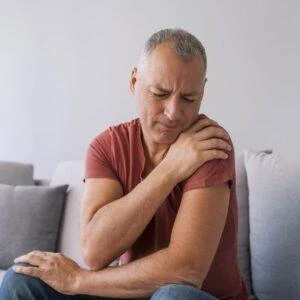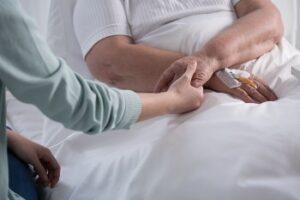
One of the most underappreciated jobs is that of a home health aide in New York City. The work of home health aides is vital because they help individuals live independently at home by visiting and performing important daily living tasks, including personal care and hygiene, light housekeeping, medication administration, wound care, catheter replacement, meal prep/checks, and companionship. This makes being a home health aide a very physical and demanding job, susceptible to injuries such as shoulder injuries. Our workers’ compensation lawyer in NYC knows that home health aide shoulder injuries can be debilitating and keep an individual from working, resulting in medical bills and lost wages.
Despite this, not all individuals who apply for workers’ comp benefits will obtain the full compensation that they deserve for their injuries. This is because some workers’ compensation carriers and their WC adjusters will limit the compensation you may be entitled to by arguing there were pre-existing conditions or by using an independent medical examiner who undermines your level of disability and directs you to return to work before you are ready. If this sounds familiar to you, learn more about how our experienced NYC workers’ compensation lawyer at O’Connor Law can help you by calling toll-free at (914) 595-4502.
Why Home Health Aide Shoulder Injuries Can be Devastating for Individuals and Patients
Home health aides rely on their shoulders and arms to do the majority of their job. This includes not just performing routine tasks, but also lifting patients out of bed, into tubs, in and out of wheelchairs, and stabilizing patients in and out of showers. Shoulder and arm strength are also necessary in emergency situations, such as lifting a fallen patient off the floor, rendering CPR, or giving life-saving Heimlich/choking assistance.
Outside of medical and emergency care, home health aides also need to use their arms and shoulders to change bedsheets, get patients dressed, and perform other daily living tasks. Many home health aides have to perform these functions for all patients.

Types of Home Health Aide Shoulder Injuries That May Qualify for Workers’ Compensation
Under New York law, worker’s compensation is a no-fault benefits program that affords injured workers medical bill reimbursement and up to two-thirds of lost wages. The most important requirement for workers’ comp benefits is that the injury is work-related. However, it does not require that the injury be caused at work—only that it is related to work duties and tasks. This means repetitive injuries such as lifting or pulling may also qualify for workers’ comp benefits, even if there was no “accident” or immediate incident that caused the injury.
Some of the most common home health aide shoulder injuries that could qualify for workers’ compensation benefits include the following:
- Rotator cuff tears – there are four rotator cuffs that give a range of motion, stability, and strength to the shoulder. Tears of any one of these rotator cuffs can result in a permanent range of motion restrictions and weakness, especially if surgery is required to repair the damage.
- SLAP tears – when the cartilage that forms the “ball-and-socket” joint of the shoulder is torn, it will only heal with surgical intervention and physical therapy. Although a patient may have one of the best surgeons doing the repair, this type of injury usually results in a range of motion restriction and weakness, while also making a patient susceptible to other serious injuries like dislocations.
- Shoulder dislocations – when the humerus (upper arm bone) pops out of the cartilage cup (ball-and-socket joint), that is a shoulder dislocation. This can be an extremely painful injury and take several months to heal, followed by several months of push, pull, and lift restrictions.
- Shoulder separations – different than a shoulder dislocation, a shoulder separation affects the acromioclavicular joint (AC joint) that is above the shoulder and upper arm (humerus). It occurs when the shoulder blade and the clavicle (collarbone) separate, including damage to the ligaments and other connective tissue. Severe shoulder separations require surgery to repair the damage done, and there is often range of motion restrictions.
- Tendonitis, bursitis, or tendinosis – repetitive motion and injury to the shoulder joint and the tendons and muscles in that complex shoulder could result in inflammation. This inflammation can be painful, but it can also be debilitating. While some anti-inflammatory medication can help alleviate the pain, including the use of cortisone shots, some inflammation may require physical therapy, occupational therapy, and even months of rest to fully resolve.
- Impingement – one of the more common types of shoulder injuries, impingement occurs when the shoulder joint either has inflammation or is structurally injured or affected, causing the bottom of the AC joint to pinch the tendons, ligaments, vessels, and nerves that sneak between the AC joint and the top of the humerus. This can cause extreme pain and range of motion restrictions that may require months of healing or surgery.
Did You or a Loved One Suffer Shoulder Injuries as a Home Health Aide? We Can Help
Home health aide shoulder injuries can result in significant medical bills and high lost wages, especially if a worker is unable to report to work due to surgery or treatment. Although most workers’ comp claims for shoulder injuries will be approved, some WC adjusters will blame pre-existing injuries or force you to return to work before your injury is ready for the intense duties of a home health aide.
If you or a loved one suffered any type of shoulder injury while working or related to your work as a home health aide, call O’Connor Law to schedule a FREE case evaluation with our NYC workers’ compensation lawyers by dialing (914) 595-4502 or send us a private message through our “Contact Us” box available here.





